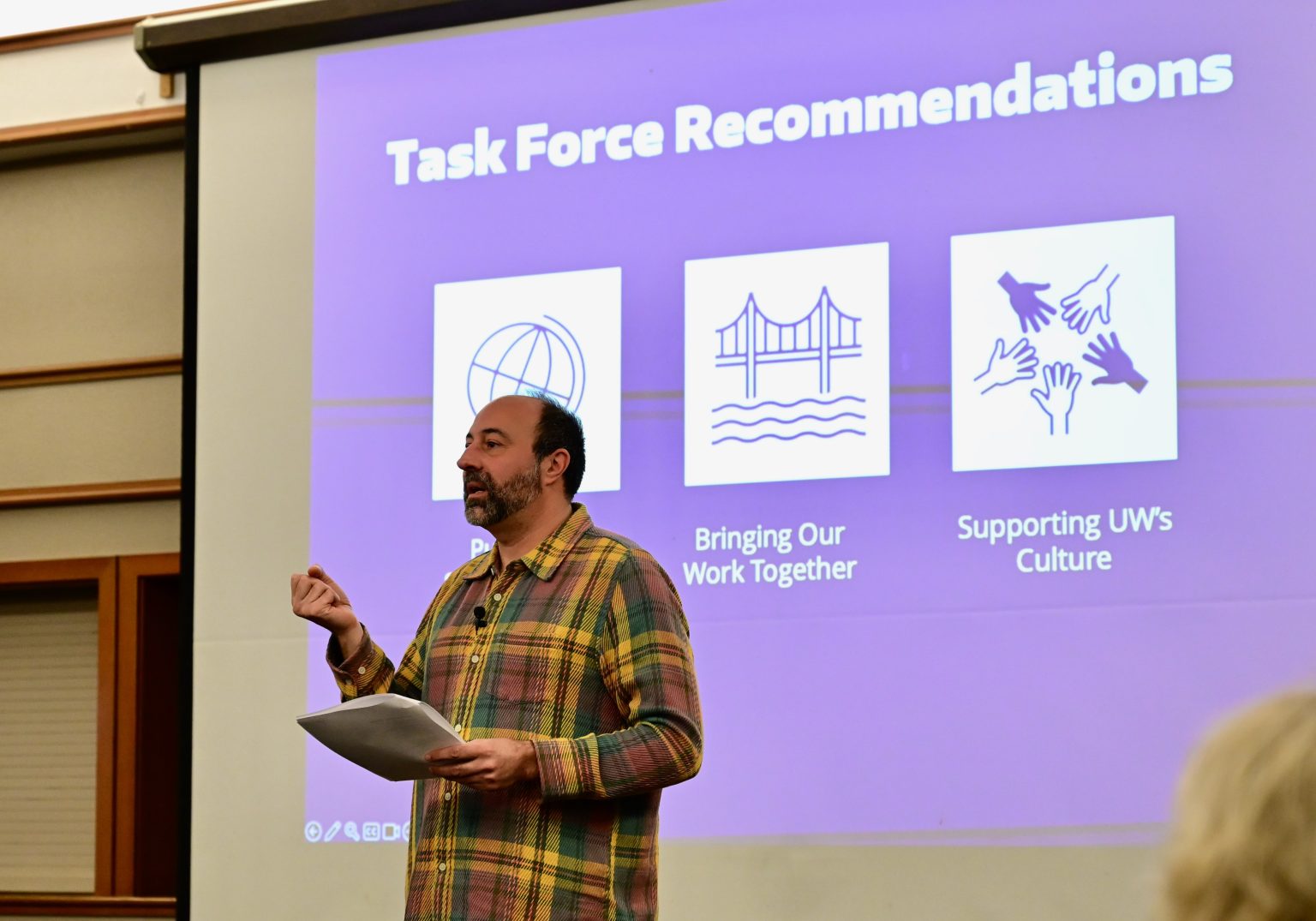Summarize this content to 2000 words in 6 paragraphs
University of Washington Professor Ryan Calo, chair of the Technology and Society Task Force, during the inaugural convening of the UW initiative called Society + Technology. (Matthew Weinstein Photo via UW)
A new initiative at the University of Washington called Society + Technology, born out of a task force first assembled in 2021, is working to foster cross-campus collaboration and boost the UW’s public profile as it relates to technology’s social, societal, and justice aspects.
The initiative, which held an inaugural convening last week, is intended to bolster research, teaching and learning across UW campuses in Seattle, Tacoma, Bothell, Wash., and at the School of Medicine.
Monika Sengul-Jones. (Photo courtesy of Monika Sengul-Jones)
Society + Technology is hosted at the UW’s Tech Policy Lab. Ryan Calo, a professor at the UW School of Law, is co-director of the lab and he served as chair of the UW Technology and Society Task Force, which was charged by the school’s president and provost, and issued a 2022 research report.
Monika Sengul-Jones is Society + Technology’s director of strategy and operations. With a PhD in Communication and Science Studies, Sengul-Jones is helping the emerging community gain visibility. There’s a new website and mailing list, and events and programs are happening and in the works.
“We put society first, very intentionally, in the name of the initiative, and in the idea that society makes technology,” Sengul-Jones told GeekWire. “It’s not that tech just comes from nowhere and then suddenly impacts society. We all make it. We are extensions of the tools that we create.”
The initiative has a number of campus partners and affiliate researchers, and it’s seeking to build relationships in the community and across industry.
A panel discussion at the Society + Technology kick-off, featuring, from left: Jason Young, TASCHA, Researchers in Community at the Information School, UW Seattle; Constance McBarron, EarthLab, College of the Environment, UW Seattle; Kathleen Woodward, Simpson Center for the Humanities, UW Seattle; François Baneyx, CoMotion, UW Seattle; Divya McMillin, Innovation and Global Engagement, UW Tacoma. (Mollie Chehab Photo via UW)
“The big questions that we have in our moment aren’t answered by one discipline or one company or one program, they require multiple, cross-disciplinary collaborations,” said Sengul-Jones, who has been an adjunct lecturer at UW Bothell. She’s also a former GeekWire Geek of the Week.
So far, programs put on by S+T include a podcast series, in which a recent episode explored consent in the age of large language models. And a new online salon series launched this week with two discussions about genetics and bioethics. Previous conversations related to artificial intelligence included a panel about AI, art, and copyright; and a conversation with legal and computer science experts about cybersecurity in the age of AI.
Sengul-Jones said other universities have explored similar initiatives, including MIT’s Media Lab; UC Berkeley’s Center for Science, Technology, Medicine, & Society; Georgia Tech Research Institute’s Technology for Society; and the University of Michigan’s Center for Social Media Responsibility.
In addition to Calo and Sengul-Jones, S+T’s leadership includes Leah Ceccarelli, a professor in the UW’s Department of Communication and director of Science, Technology, and Society Studies at UW.


